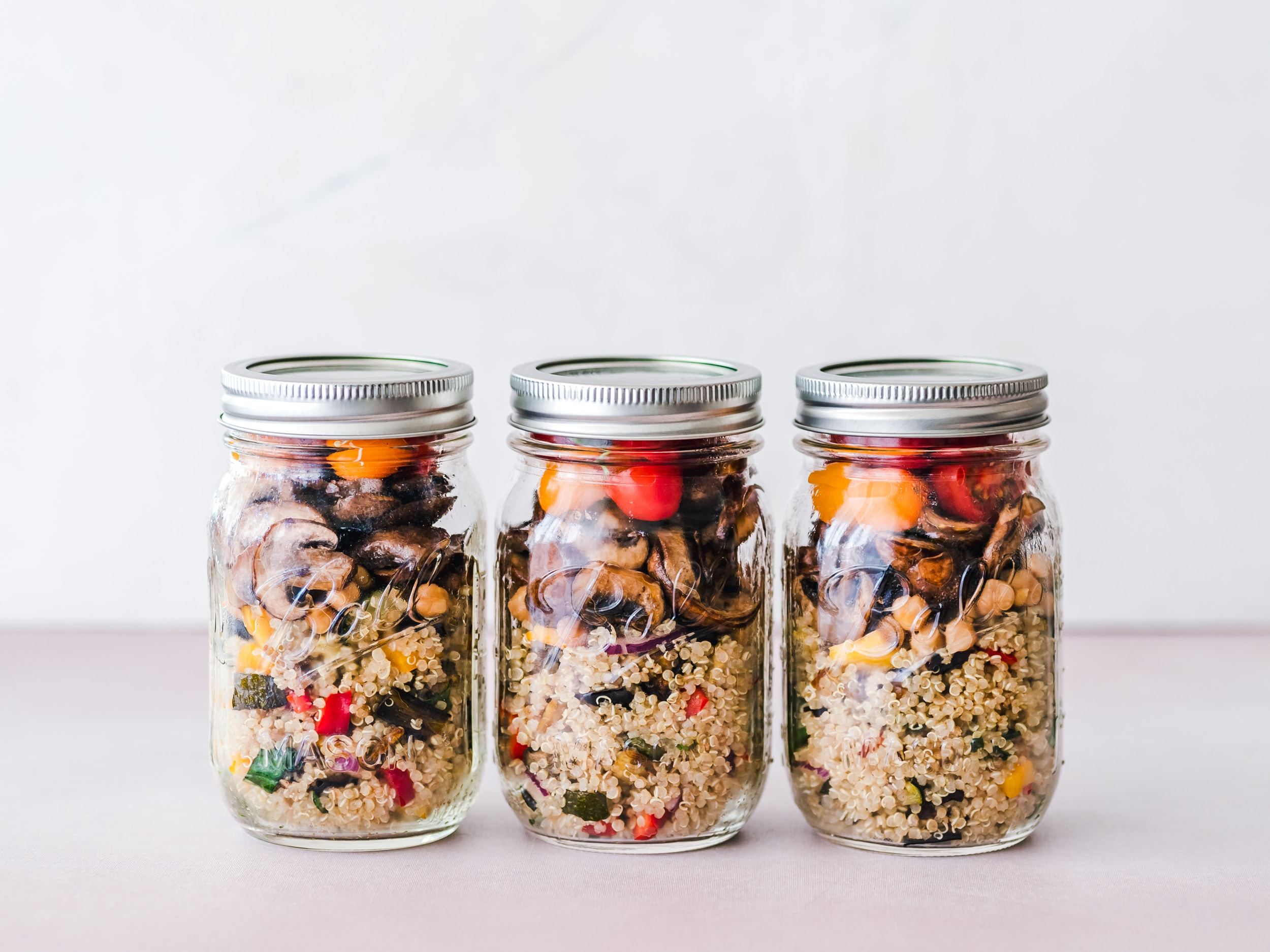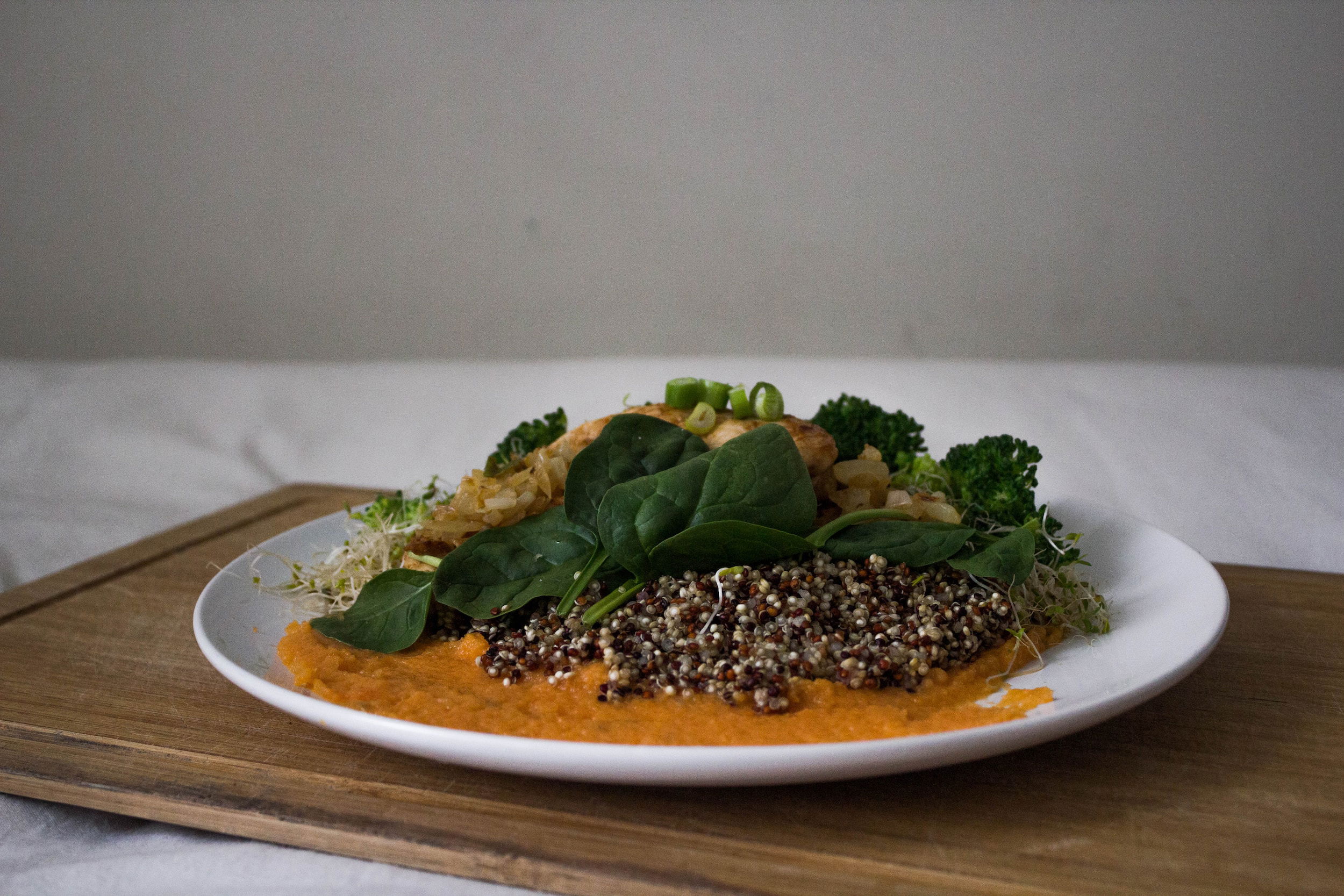Quinoa: The Ancient Grain with Modern Superfood Status
Quinoa, often hailed as a superfood, is an ancient grain with a modern reputation for exceptional nutritional value and health benefits. Originating from the Andean region of South America, quinoa has gained global popularity due to its unique nutrient profile, versatility in culinary applications, and potential to enhance overall well-being. From its remarkable protein content to its role in supporting heart health and aiding in weight management, quinoa has secured its place as a staple in health-conscious diets. In this comprehensive guide, we will explore the world of quinoa, uncover its nutritional secrets, delve into its potential health advantages, and provide insights into incorporating it into your diet.

The Nutritional Marvel of Quinoa
Quinoa (pronounced keen-wah) is celebrated for its impressive nutritional composition, which makes it stand out among grains. Here's a glimpse into the nutritional profile of quinoa:
1. Complete Protein:
Quinoa is a rare plant-based source of complete protein, meaning it contains all nine essential amino acids necessary for human health. This makes it an excellent protein source for vegetarians and vegans.
2. Dietary Fiber:
Quinoa is a rich source of dietary fiber, promoting digestive health, maintaining steady blood sugar levels, and helping control appetite.
3. Vitamins and Minerals:
Quinoa is packed with essential vitamins and minerals, including:
- Magnesium: Important for muscle and nerve function, bone health, and blood sugar regulation.
- Manganese: Supports bone health and the metabolism of carbohydrates and amino acids.
- Phosphorus: Vital for bone health and energy metabolism.
- Folate (Vitamin B9): Essential for cell division and the formation of DNA.
- Iron: Necessary for oxygen transport in the blood.
4. Antioxidants:
Quinoa contains various antioxidants, such as quercetin and kaempferol, which help protect cells from oxidative damage caused by free radicals.
5. Gluten-Free:
Quinoa is naturally gluten-free, making it suitable for those with celiac disease or gluten sensitivity.
6. Low Glycemic Index:
Quinoa has a relatively low glycemic index, meaning it has a minimal impact on blood sugar levels, making it a suitable option for people with diabetes.
Health Benefits of Quinoa
The nutrient-rich composition of quinoa contributes to a multitude of health benefits:
1. High-Quality Protein:
Quinoa's complete protein profile makes it an excellent choice for those looking to increase their protein intake, whether they are vegetarians, vegans, or simply seeking an alternative to meat.
2. Heart Health:
Quinoa's fiber, magnesium, and antioxidants support heart health by reducing blood pressure, improving cholesterol levels, and reducing the risk of heart disease.
3. Digestive Wellness:
The fiber in quinoa promotes healthy digestion and may help prevent constipation.
4. Weight Management:
The combination of protein and fiber in quinoa helps control appetite and supports weight management by promoting feelings of fullness.
5. Blood Sugar Control:
Quinoa's low glycemic index helps regulate blood sugar levels, making it a suitable option for individuals with diabetes or those at risk.
6. Bone Health:
Quinoa's magnesium, phosphorus, and manganese content contribute to maintaining strong and healthy bones.
Culinary Uses and Preparation
Quinoa is a versatile grain that can be used in various dishes and recipes:
1. Quinoa Salad:
Prepare a quinoa salad by mixing cooked quinoa with vegetables, herbs, and your choice of dressing for a nutritious and flavorful side dish or main course.
2. Quinoa Breakfast Bowl:
Enjoy a hearty breakfast by topping cooked quinoa with fruits, nuts, yogurt, and a drizzle of honey or maple syrup.
3. Quinoa Soup:
Add cooked quinoa to soups or stews to enhance their nutritional content and add texture.
4. Quinoa Stir-Fry:
Incorporate cooked quinoa into stir-fry dishes with vegetables and your choice of protein for a balanced meal.
5. Quinoa Porridge:
Prepare quinoa porridge by cooking it with milk or a dairy-free alternative, sweetening with honey or fruits, and adding spices like cinnamon or vanilla for a comforting breakfast option.
A Word of Caution
While quinoa is considered safe and healthy for most people, it may contain naturally occurring compounds called saponins that can have a bitter taste and may cause digestive discomfort in some individuals. Rinsing quinoa thoroughly before cooking can help remove these compounds.

Conclusion
Quinoa, the ancient grain with modern superfood status, offers a wide array of health benefits and nutritional advantages. From its complete protein content to its role in supporting heart health and aiding in weight management, quinoa stands as a testament to the power of whole grains in enhancing overall well-being. By incorporating quinoa into your daily diet through salads, breakfast bowls, soups, and stir-fries, you can unlock its nutritional potential and enjoy its delicious and versatile presence on your plate.
Sources:
- National Institutes of Health (NIH). "Protein." Read more
- Mayo Clinic. "Dietary fiber: Essential for a healthy diet." Read more
- Harvard T.H. Chan School of Public Health. "Magnesium." Read more
- National Institutes of Health (NIH). "Iron." Read more
- American Diabetes Association. "Glycemic Index and Diabetes." Read more
- National Osteoporosis Foundation. "Calcium/Vitamin D." Read more